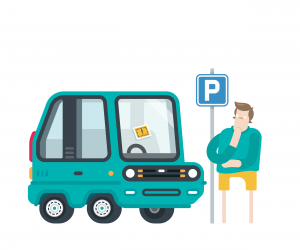
When working out your accommodation budget, be sure to factor in all your outgoings so you know exactly what you can afford. That includes your usual living expenses (groceries, clothing, transport, leisure etc.) as well as the ongoing costs of renting a property.
Find out below who pays for what and how to keep renting costs down.
Costs of Taking on a Tenancy
Check all charges before signing a tenancy agreement
Tenant charges e.g. a holding deposit and any permitted fees (most tenant fees have now been banned in England and Scotland)
Security Deposit – Paid at the start of a tenancy
Rent and any other specified charges

Find out more:
Remember you will probably need to pay a large sum upfront:
One month’s rent in advance
+ security deposit (generally 5 weeks’ rent)
+ any permitted letting agent fees
Insurance
Landlords are responsible for buildings insurance, but every tenant would be wise to take out their own contents insurance, to protect belongings against risks such as flood, fire, damage and theft.
Council Tax
Tenants are responsible for paying council tax. It is an annual tax, which helps fund local services such as rubbish collection, street lighting, police and fire brigade.
The amount you pay depends on your local council and the tax band assigned to your property (based on its value). Ask your landlord/agency which council tax band applies or check by postcode.
You could be entitled to council tax discount or exemptions if you live on your own, claim benefits or earn a low income, or if any of the tenants are full-time students.
Find out more:
Working out Your Council Tax – GOV.UK
Utilities
In a standard Assured Shorthold Tenancy (which is the usual type of tenancy), tenants pay for all utilities: electricity, gas, water rates, telephone and broadband/internet. If any bills (such as utilities, council tax etc.) are included in the rental amount, this should be clearly stated in your tenancy agreement.

Energy bills
Ask to see the Energy Performance Certificate (EPC) for the property. This gives an energy efficiency rating for the property, and a broad indication of usage and typical bills, plus recommendations on how to reduce costs. You could also ask the landlord/agent or current tenants for an idea of running costs.
Bear in mind that energy bills are likely to be higher in winter than summer, though some providers offer fixed tariffs, which even things out over the year and can work out more cost-effective.
Fix or Not? – USwitch
Pros & cons of fixed price energy plans
Research the best deals on price comparison websites; (look at more than one so you get the full picture). But bear in mind that you might not be allowed to switch suppliers, unless you pay your energy bills directly.
Meter readings should be taken at the beginning and end of the tenancy to ensure you are charged the correct amount (and you don’t pay for the previous/future tenants’ usage!)
Comparison websites – utilities:
Energy Helpline
Money Saving Expert
Money Supermarket
uSwitch
Which? Switch
Telephone/broadband
Budget for line rental and phone/broadband/internet bills.
Any existing landline will generally be BT, but tenants can select their own providers for phone and broadband. Research the best deals in your area:
Compare Broadband Deals – uSwitch
Broadband & Phone Packages – Money Supermarket
Avoid a reconnection fee: Request that the phone line is stopped, not cut when existing tenants move out.
TV Licence
Tenants are responsible for buying a TV Licence.
For joint tenancies, only one licence is required for the whole house.
Parking
Do you need to pay for an annual permit or other parking charges?
Alarm System
If there’s an alarm system, the landlord pays for maintenance, but the tenants would normally pay for any monitoring contract (where the system connects to a company who takes action if the alarm goes off).
Gardening
Since tenancy fees were banned (England & Scotland), tenants cannot be charged for 3rd party services such as gardening, unless it is included within the rent.

Flats – Service Charges
Service charges are fees paid towards the maintenance of the building, grounds and communal areas and for any services provided, such as concierge, cleaning etc.
These charges would normally be the landlord’s responsibility, but do check.
Repairs & Maintenance
If repairs are needed, contact your landlord/agent in the first instance – they will instruct contractors if necessary.
Generally if a problem is the fault of the tenants, they have to pay for a repair. If not, the landlord would pay.
Check your contract for the stated tenants’ responsibilities. They normally include:
- Replacement of light bulbs and batteries (in smoke alarms etc.)
- Gutters, drains and sometimes windows – keeping clean.
- If the property has a septic tank – emptying on a regular basis.
